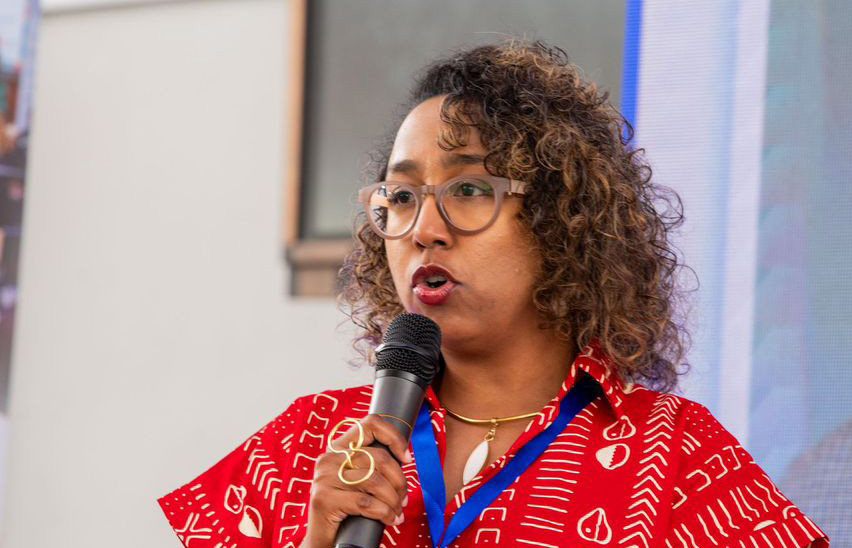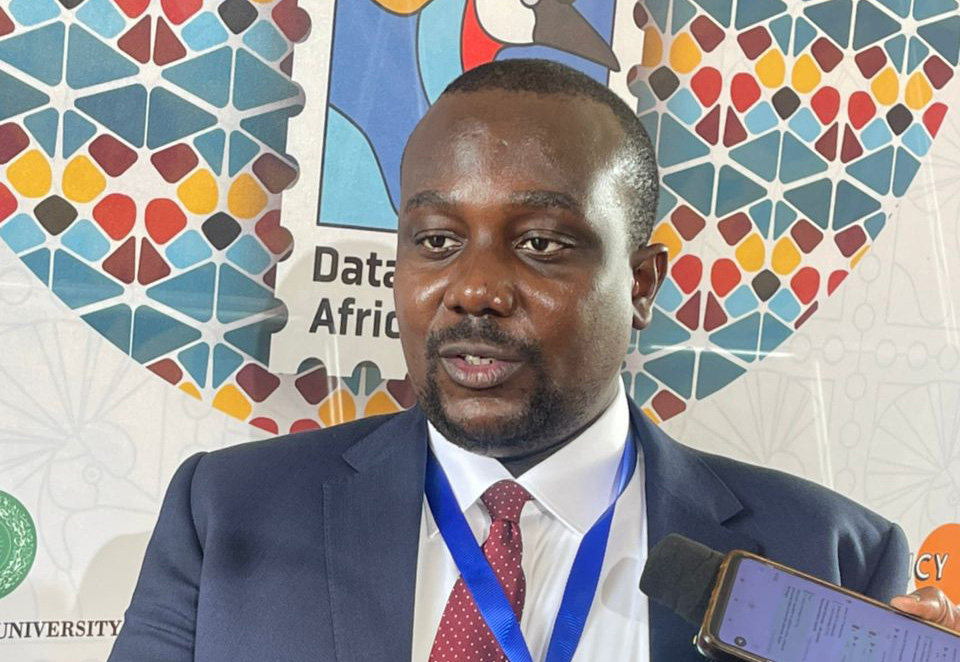Africa warned of ‘Generative AI Paradox’ as data gaps deepen at DataFest 2025
Data and technology experts across Africa are concerned about the growing generative AI paradox, which has led to significant misinformation and limited access to market data necessary for informed decision-making.
The sixth edition of DataFest Africa was held in Kampala, Uganda in October, 2025. (Credit: Emmanuel Musika)
_______________
Ugandans are increasingly adopting various Artificial Intelligence (AI) models, with the latest trend focusing on proactive agent AI for enterprises.
However, data and technology experts across Africa are concerned about the growing generative AI paradox, which has led to significant misinformation and limited access to market data necessary for informed decision-making.
This sense of concern was evident during DataFest Africa 2025, held in Kampala at the end of October.
The sixth edition of DataFest focused on addressing a dual problem. As advanced systems like GPT-5, Gemini, Claude, and DALL-E 3 become increasingly appealing due to their ability to generate fluent text in various languages, process audio-visual content, and even create memes, discussions around data equity and safety have intensified.
Conversely, while there is data available that can be misused, there is a lack of sufficient data for policymakers and the public to establish benchmarks and make informed decisions.
Data and technology expert Neema Lyer advises that constant dialogue among stakeholders should thrive to fix the problem while still benefiting from the AI boom.
Neema Lyer during a panel session at DataFest Africa 2025 in Kampala. (Photo by Ivan Tibenkana)
“It can definitely be misused. I don’t think any country has figured out what to do about it, but it’s a problem that we need to solve. What to do to perpetrators and solutions to ensure that people are not harmed by the new technology,” says Neema, the founder of Pollicy.
According to last year’s AI Index Report, the industry produced 51 notable machine learning models. Two-thirds of the new large language models (LLMs) released in 2023 were open-source, although the highest-performing models came from industry players with closed systems like Google’s Gemini.
The Vulnerable Market
Since 2015, when the first global cybersecurity index was launched by the International Telecommunication Union (ITU), 2.5b more people went online. Similarly, more Ugandans are going online, thus creating a lucrative cyber market estimated to grow up to $76.84m by 2030.
As of June this year, there were 28.9 million social media subscriptions according to Uganda Communications Commission (UCC). These covered WhatsApp, 9.2m subscriptions, 8.8m on TikTok, 6.1m on YouTube, 2.2m on Snapchat, 1.5m on Instagram and 1.1m on X (formerly Twitter). Many are also accessing blogs, digital newspapers and other internet-based services.
The public, government and the financial sector are all vulnerable to disinformation, deception and fraud. Since 2020, cybercrimes have increased by 51.7%. From 256 cases in 2020 to 474 cases last year.
From a financial perspective, Sh72.1b was lost to cybercrimes last year, with just Sh420m recovered, according to the 2024 annual crime report.
“We have seen prevalence of data theft and misuse across mobile money credit services. Personal data such as contacts and photos have been used to scam owners as they seek loans,” Baker Birikujja, the National Personal Data Protection Director, reveals.

Baker Birikujja, the National Personal Data Protection Director speaks to journalists at DataFest Africa 2025 in Kampala. (Photo by Ivan Tibenkana)
The Data Gap
Amidst data theft and misuse, there is limited access to data, a scenario that affects both the government and the public. Ultimately, the shortage has been linked to a drastic impact on both national debt and revenue.
According to Ivy Gikonyo, the digital rights project officer at the Centre for Human Rights, University of Pretoria, the lack of data impacts accountability as there is limited transparency.
“As citizens, you can demand debt audits, as lawyers, you can challenge the secrecy in court and push for legal reforms on debt disclosure,” Gikonyo advises.
She also calls upon innovators to build tools that simplify debt data so that it’s easily understood by the public.
From a domestic revenue perspective, improved access to data is expected to breed fair assessments and improve tax revenue.
“Money is also made online. For the tax collector to ably and fairly assess, there needs to be independent access to data regarding earnings, timeframes and the respective people,” says Gilbert Sendugwa, the ED Africa Freedom of Information Centre.
Counter Measures
Globally, ICT infrastructure is prone to breaches as technology evolves, and there is great concern for Africa, where the majority of countries are simply establishing or evolving as per their cybersecurity commitments.
For Uganda, countermeasures include initiatives under the Computer Emergency Response Team that was established by UCC with support from the ITU.
In the same spirit, the coalition between NITA-U and the Personal Data Protection Office (PDPO) unleashed the Beera Ku Guard campaign in September. It intends to achieve cybersecurity, data protection and privacy.
The campaign is part of Uganda’s broader strategy to implement the Digital Transformation Roadmap 2023/24–2027/28.
Subsequently, the move is set to reach at least 70% of the population, directly engage over 100,000 citizens and support the registration of 1,000 data-controlling organisations with the PDPO by next year.